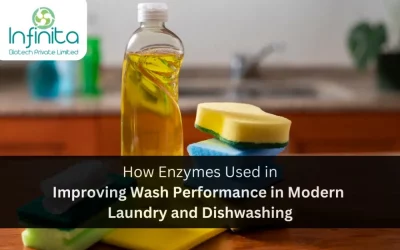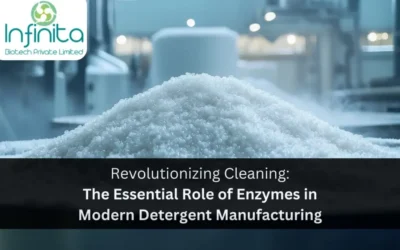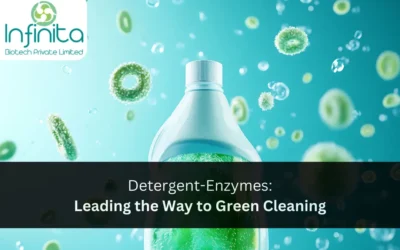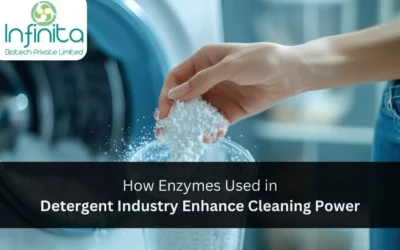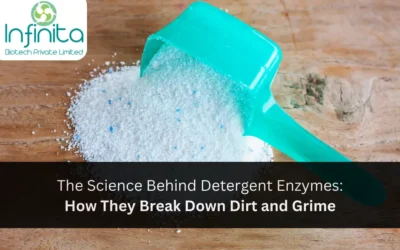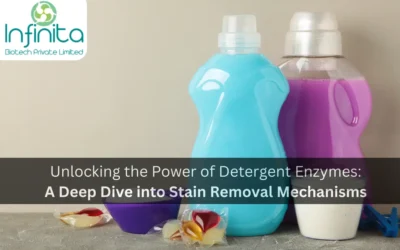Enzymes have always been popular in industrial or manufacturing units as they play a significant role in increasing the chemical reaction occurring in different biological processes, such as digestion and growth. When it comes to the detergent industry, enzymes for cleaning are used to offer a higher degree of stain removal, colours, fabrics, and overall cleaning experience. Though different types of enzymes are available for serving different purposes, two enzymes that work wonders in the detergent industry include lipase and protease. These enzymes are also used in cleaning products for bathroom and cleaning detergents. Want to know how these enzymes for cleaning detergents work? Stride along with us till the end of this blog.
Working Principle Of Enzymes For Cleaning
Enzymes for cleaning act like tiny selective scissors that break down stains into different pieces in order to remove them from the fabrics. As aforementioned, lipase and protease (digestive enzymes) are used to make detergents that can effectively remove adamant stains from fabrics. Lipase enzyme is responsible for breaking down fats and oils; on the contrary, protease breaks down protein like blood and gravy. The combination of these enzymes allows cleaning detergents to work more effectively and clean the deepest parts of the fabric’s structure without leaving any stains behind. That is why they are used in industrial detergent as a component.
Where To Use Enzymes For Cleaning?
You have clearly read that enzymes are considered to be an excellent cleaning agent for removing a wide variety of stains. In fact, enzymes are experts in removing protein stains particularly. Further, these enzymes become pretty compelling when they work, even in low-temperature water. Well, this particularly helps with fragile clothes such as wool and silk. You must know that low temperatures also do an excellent job for dyed clothing, such as denim, as it reduces colour transference. Detergents and cleaners made using these enzymes are widely used in different industries to clean stubborn stains from fabrics, equipment, utensils and much more.
What Are The Enzymes For Cleaning?
Did you know the human body produces different types of enzymes? Every enzyme comes with its own specific function. The two most popular enzymes found in laundry detergents are of the digestive variety: lipase and protease. Enzymes that help break down soils at a natural PH between 7-10 called enzymes for cleaning. Further, the complex structure of enzymes demands less energy to be expended in any reaction breaking down soils. The best part about these enzymes is that they’re highly used for stain removal and at low temperatures. Why? Because these enzymes are incredibly sensitive to temperature. So, if the temperature used is too high, the enzymes will be broken apart before showcasing their strain-removal magic. So, these enzymes and cleaning detergents play a significant role in the laundry industry.
Why Use Biological Detergents?
Are you pondering over why you should use biological detergents? Let’s talk about it – biological detergents contain natural enzymes that play a great role in breaking down greasy, fatty, and starchy compounds found in some common clothing stains like bike oil, pasta sauce, hamburger grease, etc. These enzymes work by removing the stains from fabrics, ultimately making them exceptional stain removals and welcoming addition to laundry detergents and cleaning products for the bathroom. Since bio detergents come from enzymes, they work well at lower temperatures no matter how obdurate the stain is on garments.
Are you looking for lipase, protease, amylase, cellulase or any other enzyme to use in your industry? Infinita Biotech is the solution. It is a leading multidimensional biotechnology company offering natural and eco-friendly enzymes at pocket-friendly prices for all types of industries. Since we are so much concerned about the environment and your requirements, we keep it pollutant free. We have a well-qualified and highly motivated team that provides quality assurance procedures. So, you can rely on our enzymes without worrying about anything. Connect with us for more info.
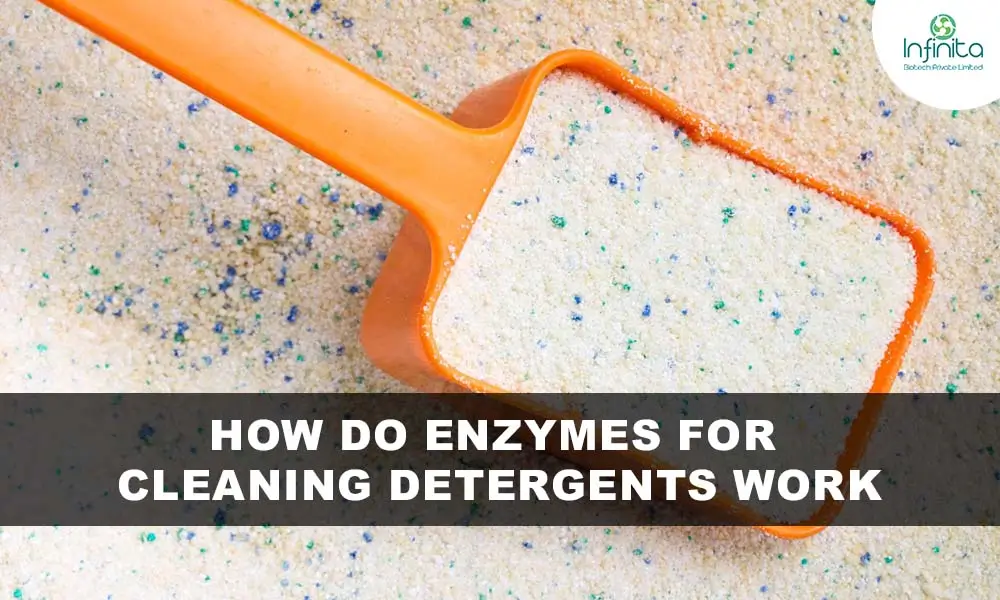
 Summarize this Article with AI
Summarize this Article with AI
